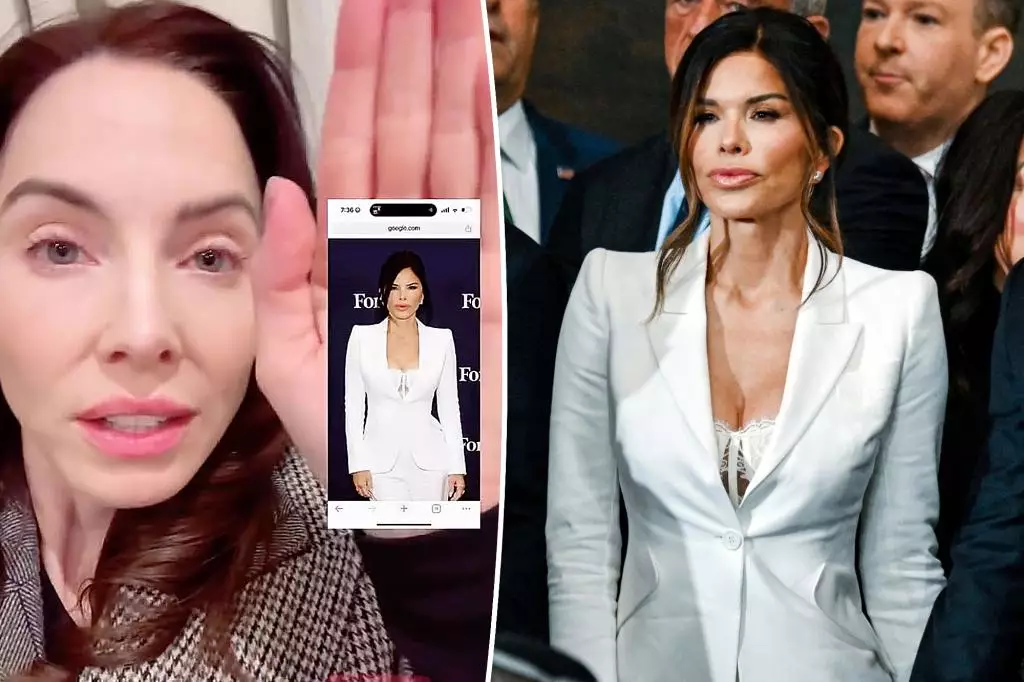In the world of celebrity fashion, few moments generate as much debate as high-profile public appearances. Recently, comedian Whitney Cummings took aim at Lauren Sánchez’s controversial outfit during Donald Trump’s inauguration. Despite Cummings’ lighthearted critique, her commentary reflects a broader cultural conversation about women’s fashion choices and societal standards.
Cummings’ response to Sánchez’s choice of a white Alexander McQueen pantsuit paired with a lace bra was filled with both humor and empathy. She candidly admitted to her Instagram followers that while she didn’t personally favor the ensemble, she respected Sánchez as a businesswoman who made choices that have propelled her to success. “We all wish we had her judgment,” Cummings stated, pinpointing the complexity of navigating public scrutiny while striving to maintain an image of sophistication.
While recognizing Sánchez’s fashion as potentially lacking, Cummings humorously categorized the look as reminiscent of “Bachelor in Paradise” with some “Love Is Blind” energy. This playful jab signifies how fashion can often traverse the line between chic and tacky, particularly under the intense scrutiny of social media.
Cummings’ assertion that white lace is “a scam” resonates with many women who have experienced the pitfalls of fashion trends. Her observation that items that appear appealing in private can sometimes backfire in public contexts is valid. The cultural expectation for women to dress impeccably, regardless of the setting, often leads to harsh criticism and comparison. In Cummings’ case, she suggested that even high fashion can fall victim to misjudgment and, in essence, can betray the wearer.
Sánchez’s choice sparked additional reactions, with criticism from figures such as Megyn Kelly labeling her look as inappropriate. Conversely, supportive comments emerged in Sánchez’s defense, showcasing the duality of public opinion on women’s attire. The pressures women face regarding their fashion choices ultimately reflect broader societal expectations about femininity and professionalism.
In light of the critiques, Sánchez remained poised, opting to respond to Cummings with a simple heart emoji while also expressing her appreciation for supportive sentiments shared by her followers. Notably, her choice of attire at the inaugural ball and other events showcased a striking evolution, proving her ability to embrace bold fashion boldly. Her ethereal orange gown and strapless black dress—each from Dolce & Gabbana—illustrated a compelling narrative of personal style that cannot simply be reduced to fleeting judgments.
Interestingly, even tech mogul Mark Zuckerberg seemed captivated, as footage surfaced of him looking at Sánchez’s dress, later liking a photo of her ball appearance. Such reactions underscore the complicated intersection of fashion, perception, and female empowerment.
The discourse surrounding Lauren Sánchez’s inauguration look serves as a reminder that women in the public eye are often subject to polarized opinions about their dress and presentation. While critiques may emanate from various quarters, Sanchez’s ability to navigate such scrutiny with grace speaks volumes about her poise and confidence. Ultimately, the conversations sparked by this incident reflect an ongoing societal struggle regarding women’s choices in fashion, highlighting that behind every outfit lies a complex narrative deserving of understanding rather than ridicule.

